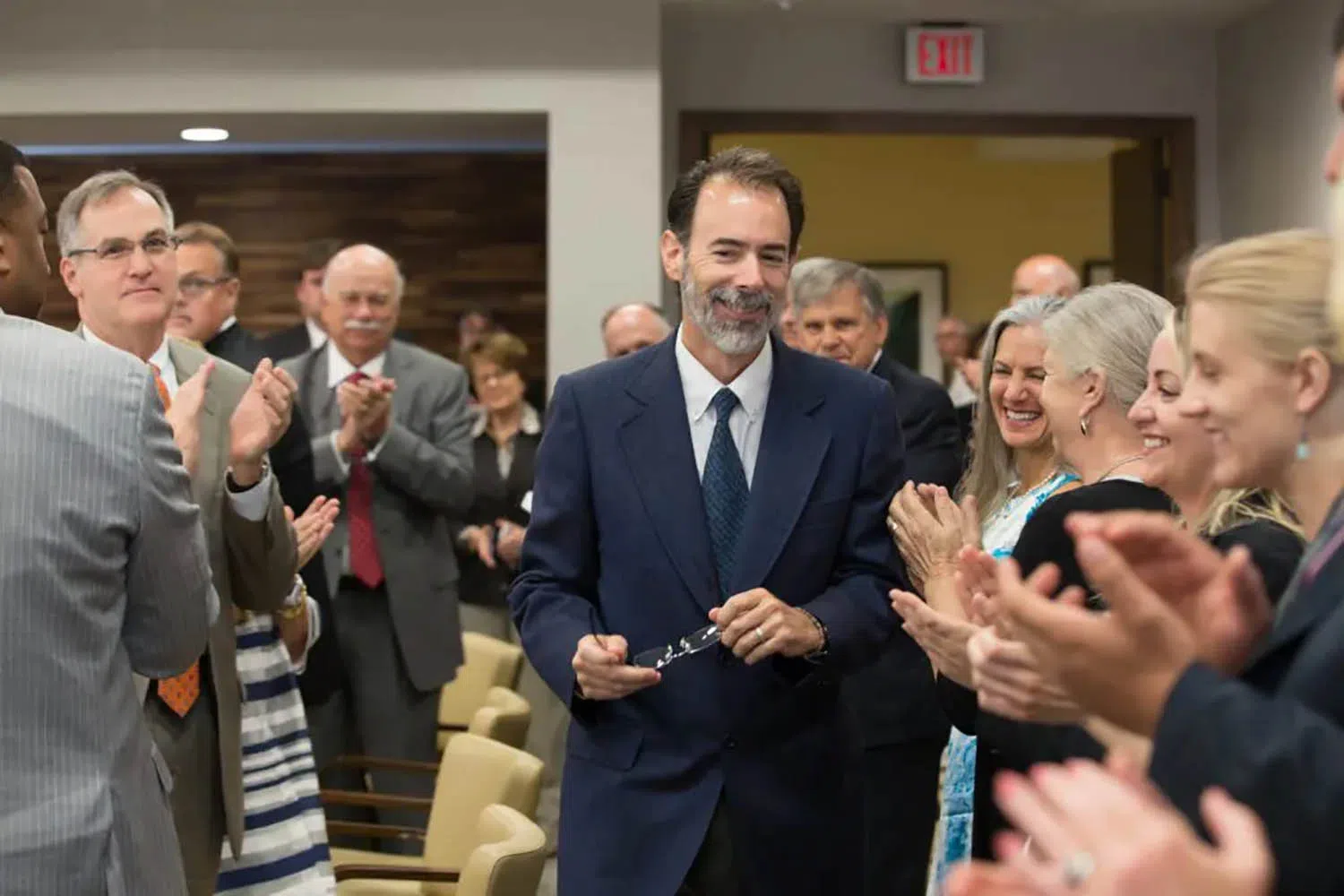RALEIGH, N.C. (WPTF) – A recent grant aimed at commercializing university research could help bring new treatment options for patient’s Alzheimer’s Disease. Dr. Ben Bahr, a William C. Friday endowed chair and distinguished professor at UNC Pembroke, has been studying Alzheimer’s for years and has identified a target for the diagnosis of the most common form of dementia. He has presented his team’s research in 18 countries, has over 150 publications and patents, and leads UNCP as a partner institution of the Duke-UNC Alzheimer’s Disease Research Center.
Alzheimer’s disease affects 55 million people worldwide, as well as other brain disorders. Current treatment options are expensive, inaccessible, and/or have limited effectiveness. Bahr’s patent-pending compounds work to reduce multiple pathogenic proteins that accumulate in the brains of Alzheimer’s patients.
Dr. Ben Bahr, on new Alzheimer treatment | RSS.com
“I’ve been training teams of students for over 20 years now and they’ve helped me identify these self-repair mechanisms that the drugs can modulate. Think of it like turning up the volume of a stereo speaker that’s gotten old and not working so well. By turning up the volume, the repair messages can better be heard throughout the body especially in the brain,” said Bahr. “NCInnovation gave us a grant of over a million dollars to help pursue new drug molecules that activate the same repair pathways our brain uses to maintain function, memories and thinking ability as we get older.”
Other labs such as Harvard, Cornell, and Northwestern have been teasing apart the tiny details of protein-clearance machinery (otherwise called the garbage disposal of the brain) to find drug targets that help remove the pathogenic deposits that occur not just in Alzheimer’s but also Parkinson’s.
“Some people have better self-repair systems than other people which explains why every person has different outcomes. Some people are sharper than a tack when they get to their 90’s and others have growing memory problems. We’re trying to help those that need help clearing those bad proteins that accumulate with time, especially with age because age is the biggest risk factor of dementia,” said Bahr.
According to Bahr, it’s important to have low-cost, oral therapeutics for these patients to take as a nice pill form can be easily accessible. They’re looking to get all communities something that’s an every day simple task of taking a pill, especially for caregivers.
“The current therapeutic that’s been newly approved by the FDA are called immuno-therapies, they’re actually human proteins that are very expensive to generate, they have to be bio-manufactured, and then it has to be injected intravenously. Not everybody has access to a place to do the I.V. treatments and oftentimes when you care for someone with dementia it’s very difficult to get them in a car, or get them in a new environment, it’s very disruptive. We want something that helps both the caregivers and the care-facilities that are working hard tirelessly for this terrible disease,” said Bahr.
It’s going to be a long road to get the drug approved, but those are the steps it takes to go to the next phase of clinical trial. The team at UNC Pembroke is currently doing testing on mice with the same human genmutations that cause Alzheimer’s looking for improved memory, reduced eating due to nausea and changes in breathing.
“We give them blood tests, everything that the FDA requires so we can move our drug program to clinical trials,” said Bahr. “It takes an organization like NCInnovation to give us the confidence to move forward and approach the FDA and form the relationships with big companies in our state that really want to be game changers to try to treat dementia risk-factors long before you’re actually dealing with the Alzheimer’s disease.”
The non-profit organization that’s helping to unlock the innovative potential of North Carolina’s world-class public universities is NCInnovation. Around $13.6 million in R&D funding for 17 research projects at 12 North Carolina public universities has been approved by the unanimous Board of Directors after a multi-month review and evaluation process. Only university researchers, not private companies, are eligible for NCInnovation grants.
“Thank you to NCInnovation’s external reviewers, hard-working staff, and Program Committee members for the thoughtful and diligent work put into this process,” said Deanna Ballard, chair of the NCInnovation Board of Directors Program Committee. “The research projects on this list are exactly what North Carolina public universities should be championing: real-world research that can bolster North Carolina’s – and America’s – competitiveness.”
NCInnovation is meant to bridge the gap between industry and academia to advance more NC public university research from proof-of-concept to the point where it is commercially investable. The organization is working to overcome challenges such as lack of applied research, underdeveloped capital landscape, uneven success and lack of regional innovation networks.
NCInnovation grant applications go through a multi-phase review process that includes a pre-application, a full application, an external expert review panel and a market fit assessment.
“North Carolina’s public universities are working on truly amazing technologies, from improving poultry and livestock mortality rates to treating diseases like Alzheimer’s and pancreatic cancer,” said Michelle Bolas, executive vice president and chief innovation officer of NCInnovation. “NCInnovation helps researchers advance their discoveries through the university R&D process toward commercialization, strengthening the university-to-industry pipeline that’s central to American competitiveness.”

